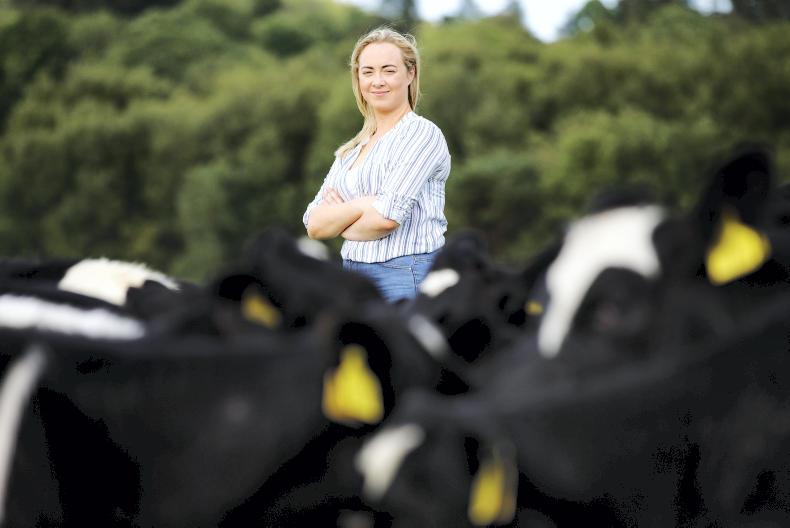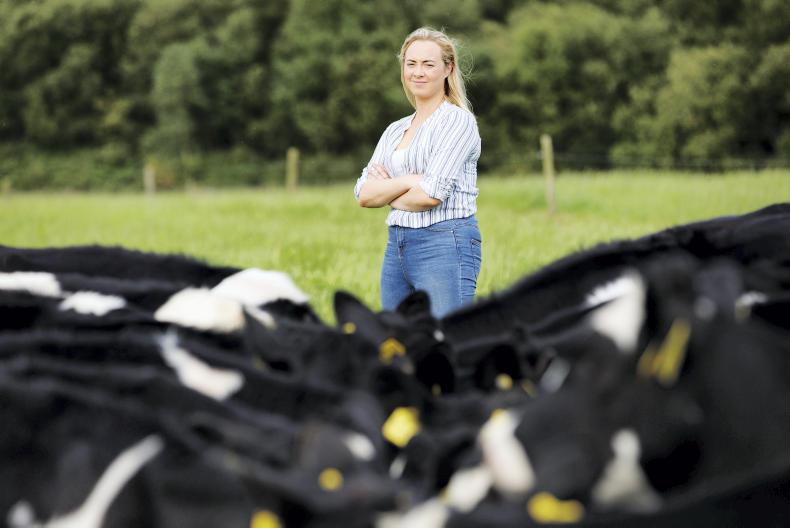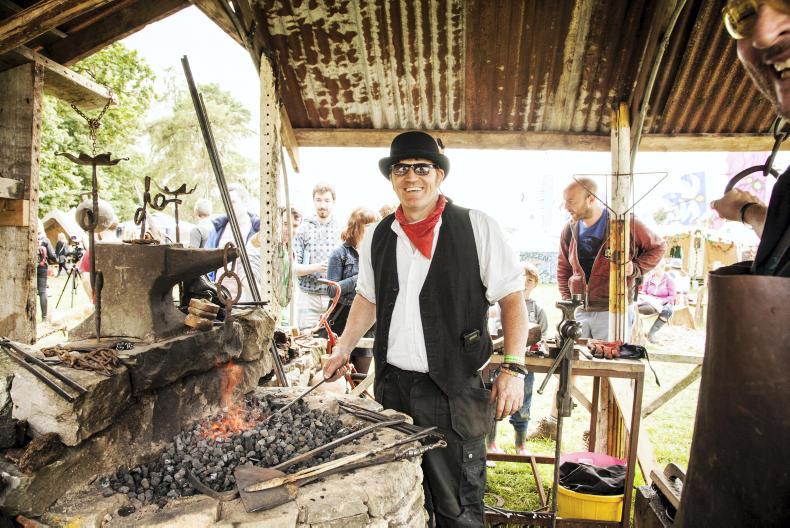At 5 foot 3 and petite in size, you wouldn’t expect that Lisa O’Kelly is well able to get a cow into a cattle crush, but this veterinary nurse does just that, multiple times a week. “Sometimes I get a few raised eyebrows from farmers but I am well able,” she laughs.
She certainly is, as Lisa travels across the farms of north Cork where some visits with the vet could see three cows needing to be TB tested while another farm visit could see 300 cows line up.
“Mondays and Tuesdays are always my days on the road and they really are the highlight of my working week. TB testing would be a major part of the job but during the spring, I could be assisting with calving or a C-section, while on other visits I could be helping out with vaccinations.
“During the rest of the week, I am usually in the office helping the vets in the huge amount of work that needs to be done to keep the show on the road. That could be scanning the cow’s passports to state what tests they had done that week or lining up the vet’s visits for the following week.”
The cows of Cork
Abbeyville Veterinary Hospital has eight vets, five who specialise in large animals and three specialising in small animals. Call outs cover a huge part of the county from Mallow to Cobh, across to Donaghmore and Carrigtwohill.
“It’s a very busy surgery so there is a lot of work to make sure every visit is scheduled and that every farmer is kept in the loop.
There are plenty of days when I have to deal with dung on my face
“I’d say a lot of farmers aren’t aware of all the behind-the-scenes work or the support that veterinary nurses give to the vet. Now in fairness, there aren’t too many large-animal veterinary nurses around – we are in the minority so my role isn’t all about cuddling puppies.
“There are plenty of days when I have to deal with dung on my face. But I really love working with the cows and feel proud that I am contributing, in my small part towards a strong Irish dairy industry.”
Nervy Cattle
While Lisa is no stranger to farms, she does say she has learned a lot during her time at Abbeyville Veterinary Hospital.
“I love observing the animals, their different mannerisms and actions. When I arrive on a farm, I can tell almost immediately if the family is involved in farming or if the farmer is working on their own.
Working with large animals, you have to be prepared for any scenario
“On the farms with family involvement, the cows are much more relaxed with strangers. They’d walk right up to you. When the farmer is working on their own, the cows would run a mile. They’d jump over the fence before they’d let you touch them,” she laughs.
“Working with large animals, you have to be prepared for any scenario. Sometimes things go wrong and you have to keep a good head on your shoulders, assess the situation and deal with it there and then. And sometimes that’s not just calming the animals, it could extend to calming the farmer. But whether it’s on a farm or not, it’s a good life lesson to learn.”

Farmer in the making
Life is certainly busy for Lisa outside of work with her spirited and energetic four-year-old boy Tiernan. “Oh I’d say there is a career working with animals ahead for him as well, he says he wants to be a farmer. He is just like me as a child. I wanted to horse ride when I was three and we always had dogs and horses over the years. When he is playing at home, there are no doctors or nurses for him. He plays with the dogs and pretends he is a vet.”
Juggling work and a small boy has its challenges but Lisa says she has great support from her parents, Jim and Hilary.
“I couldn’t do it without them, to be honest, they are great for collecting him from playschool, or if I am on an early shift, they will get him ready for the day. Of course, it’s a huge help but it’s also really lovely to see Tiernan have such a close relationship with his grandparents, for them to be part of his everyday life. That bond is really special.”
Light in our lives
Tiernan’s childhood energy and positivity has also helped the family get through the hardest part of their life, dealing with the death of Kate, Lisa’s older sister in 2017.
“Kate was only 31 when she died. She had a condition called Friedreich’s ataxia, a degenerative neuro-muscular disorder. I guess we knew for a long time that Kate’s life expectancy would be short and the condition did affect her more and more as the years passed.
My life changed. I lost my sister, but also I had helped care for Kate since I was 9 or 10
“When the end came though, even though it was expected, it was still so heart breaking. She was such a strong person, a light in our lives and being without her has left a huge hole.
“My life changed. I lost my sister, but also I had helped care for Kate since I was 9 or 10. All our lives changed, what my parents did in terms of caring for Kate was exceptional and she remained at home right until the end. I suppose Tiernan helped us get through that time, to get up in the morning, and it’s lovely that he still has memories of Kate and talks about her.
“It helped us to heal, and I feel I am healing because now when I talk about Kate, I can laugh instead of cry.”
Community spirit
“Our country life here in Killavullen near Mallow also helped us through. My boyfriend Ray is a great support. I love helping out on his farm, but sometimes he knows that just a walk down the fields helps. The community support in Killavullen has been great as well.
“People will always ask how I am, how mam and dad are, there is that community support that you just don’t find everywhere. Getting out and working on farms also helps keep the mind focused, but I have to say, I will always miss coming home and having Kate ask about my day with the animals, she was always a real animal lover too.”









SHARING OPTIONS